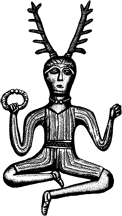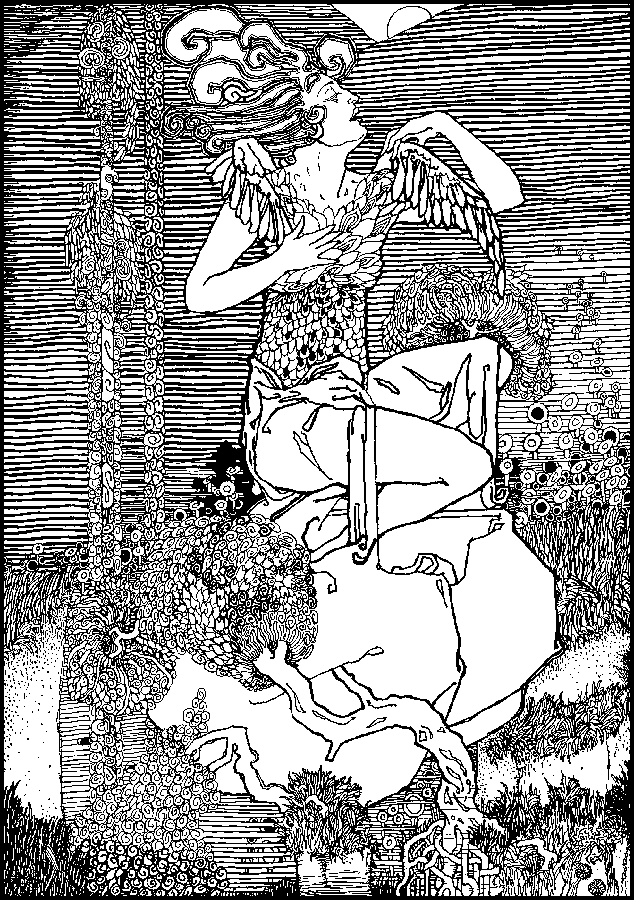
Greg Stafford
 In its earliest days a part of Glorantha was called Brilliantia. In its virgin years nothing here was dark or fearful. Everyone and everything got along without any trace of trouble or problem.
In its earliest days a part of Glorantha was called Brilliantia. In its virgin years nothing here was dark or fearful. Everyone and everything got along without any trace of trouble or problem.Leaders emerged for the first time in Brilliantia. They weren't appointed, as Yelm had been. They simply did something, and others followed. No one planned anything in those days.
The first leader in Brilliantia was called Genert. He was a Namer. He did not make up language - a much wiser god called Idovanus did that. But with a band of his equals Genert went about the whole of Brilliantia and gave names to the things which they encountered. He gave names to everything, and so the totality of that everything was in turn named after him. Thus Genertela became the second name of the lands of Brilliantia, and that name is still used today.
When we Journey to those simple times we can still speak that Universal Tongue. Everything can speak to each other, because there is only one way to communicate and everything is able to do so. The Divine is all around us there. We speak Genert's Tongue.
Be warned, though: a Journey to Genert's Era is dangerous to anyone who has not learned that they are, in fact, a Small God. The power of that simple, first language is such that uttering it at any time causes something to be created. If you do this, and do not know the secrets of being a Small God, the consequences of your actions will have the same disastrous consequences which they had for those original beings.
The Universal Language is the Language of Creation, and so any petty utterance creates something. Imagine the glorious consonance of many voices joined in the Song of Creation! What you imagine is a tiny part of what everyone sang after words were made. Seyotel, the Beautiful Word and the Song Goddess, led the Great song. The harmonies of the world as their tune. The song praised the beauty and the glories of the Garden of Life, and that flowery reality bloomed all around the singers.
 That is the origin of Flower and Song. When Flower and Song are done right, we can return to that very garden. Unlike the originators, however, we inevitably know the sorrow too, and so despite immortal beauty we know grief too. We know that the flowers shall die. Those first singers, of course, knew nothing of their future, where we live. It lurked out of sight to them, unseen, like the lurking evils were just another kind of butterfly or bright bird in the song.
That is the origin of Flower and Song. When Flower and Song are done right, we can return to that very garden. Unlike the originators, however, we inevitably know the sorrow too, and so despite immortal beauty we know grief too. We know that the flowers shall die. Those first singers, of course, knew nothing of their future, where we live. It lurked out of sight to them, unseen, like the lurking evils were just another kind of butterfly or bright bird in the song.
Look at that brightness: when we sing the song right then our grief disappears. The four-colored notes, those hummingbirds which circle and hover, leap from our throats to the three-colored petals of love. Even the thorns of the bright red rose are an exquisite lesson, teaching us of the redness within ourselves. When we finish singing, and we are sad, then we should remember that red life inside us.
The song that Seyotel led was of one hundred birds, one thousand butterflies, and one million flowers. It was the first, and no other was ever as magnificent. From that moment forward the Garden was a favorite place of comfort and unity for all beings of Glorantha.
That was the Song of Genert.





